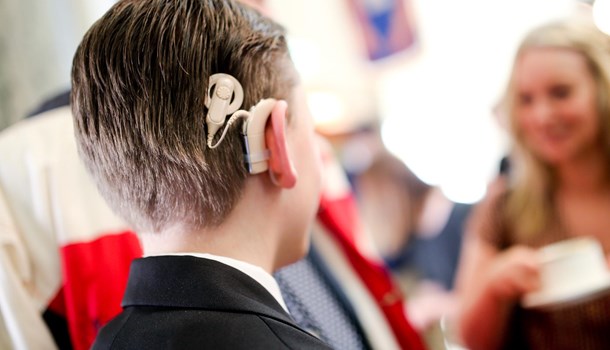Bullying and deaf children

While a lot of children and young people will not face issues with bullying in or outside of school, some will, and as a parent you may have questions about what you can do to help, advise and support your child. It’s also vital to know how you can work with their school to make sure the bullying is being dealt with effectively.
How might deaf children experience bullying?
Bullying can take place in many ways and it can happen in a number of different locations.
Bullying can be:
- verbal
- emotional
- physical
- online (cyberbullying).
Bullying can happen at school or at other places like Guides, Scouts, sports groups and after-school clubs. Bullying can happen face-to-face, over the phone or through texts and online.
- verbal: name-calling, insulting, teasing, ridiculing
- emotional/indirect: ignoring or deliberately excluding, spreading rumours or nasty stories, turning friends against the child, laughing at them or talking about them behind their back, taking, hiding or damaging their personal belongings, drawing unkind pictures of the child, using a feature of the child’s disability to bully them, e.g. deliberately making loud noises near a deaf child who is known to find loud noises unpleasant, creeping up on them from behind to scare them, deliberately making a noise when the teacher is giving instructions
- physical: any physical contact which would hurt such as hitting, kicking, pinching, pushing, shoving, tripping up, pulling out hearing aids
- manipulation/controlling behaviour: using the child’s vulnerability as a way of controlling them or making them do something the bully wants them to do
- cyberbullying: any form of bullying that is carried out through the use of electronic media devices, such as computers, laptops, smartphones, tablets, or gaming consoles.
- lack of deaf awareness among staff and other children at school
- being more direct than hearing peers
- being less able to pick up on social cues, both verbal and non-verbal, for example, a sarcastic comment or tone of voice
- appearing physically different because of using hearing aids, implants and radio aids
- teaching arrangements which emphasise their difference (for example, being taught separately from peers, being given different work or being supported by a teaching assistant)
- negative attitudes of others towards any kind of disability
- finding it hard to make friends
- reduced ability to stand up for themselves or verbally defend themselves
- spending more time on the internet (because they feel more comfortable communicating that way than face to face), which may make them more vulnerable to cyberbullying
- speaking differently to other children at school.
It is important not to assume that all deaf children are going to be bullied, but it’s sensible to be mindful of signs that it might be happening, especially since some children may not report if they are being bullied or are unable to because of communication or learning difficulties. Other children can be good at hiding their feelings.
All of the following could be clues that your child is being bullied:
- difficulties sleeping
- becoming withdrawn
- bed-wetting (where this has not previously been a problem)
- reluctance to go to school (or wherever the bullying is taking place, such as a sport or youth club), maybe faking illness to avoid it
- being frequently late for school (where lateness has not previously been an issue)
- doing less well at school
- changing, or wanting to change, their route to school or the time they set off
- being aggressive towards family members, teachers and/or other children, or showing bullying behaviours themselves
- coming home with cuts and bruises or with damage to clothing or belongings
- coming home hungrier than usual (which might indicate that their packed lunch or lunch money is being taken)
- ‘losing’ belongings or money
- wanting to distance themselves from obvious signs of deafness or difference, for example, not wanting to wear hearing aids or not wanting to be supported in class.
Sally, mother of Chloe, aged 7
My little girl, Chloe, has microtia. She’s always been very open and unselfconscious about it and happily wears her hair behind her ears. She goes to mainstream school and she’s doing really well there but she has experienced bullying because of her microtia twice since she started school.
The first time it happened was when she was four. Three children in the class started pointing at her ears and making comments. Luckily Chloe was very quick to tell me what was happening so I was able to do something about it before things got out of hand. I was really angry and upset. I’d kind of expected this sort of thing to happen at some point but it was still upsetting and I did end up crying when I spoke to the teacher about it. I went to see her straight away and she was superb. The next day she did some work with the whole class and Chloe even gave her own little presentation about microtia. Since then she hasn’t had any trouble at all with the classmates who’ve been with her all along. They’re all very accepting and it’s not an issue. When I asked her recently how the bullying had made her feel, she said that she had felt angry and a little bit sad.
A tip that I’d give to families with deaf children is that it’s really important to be upfront from the start about your child’s condition and encourage them to do the same.
Ammaar's top tips for deaf children being bullied
16 year old Ammaar gives his tips on how to stop bullying if it is happening to you.
